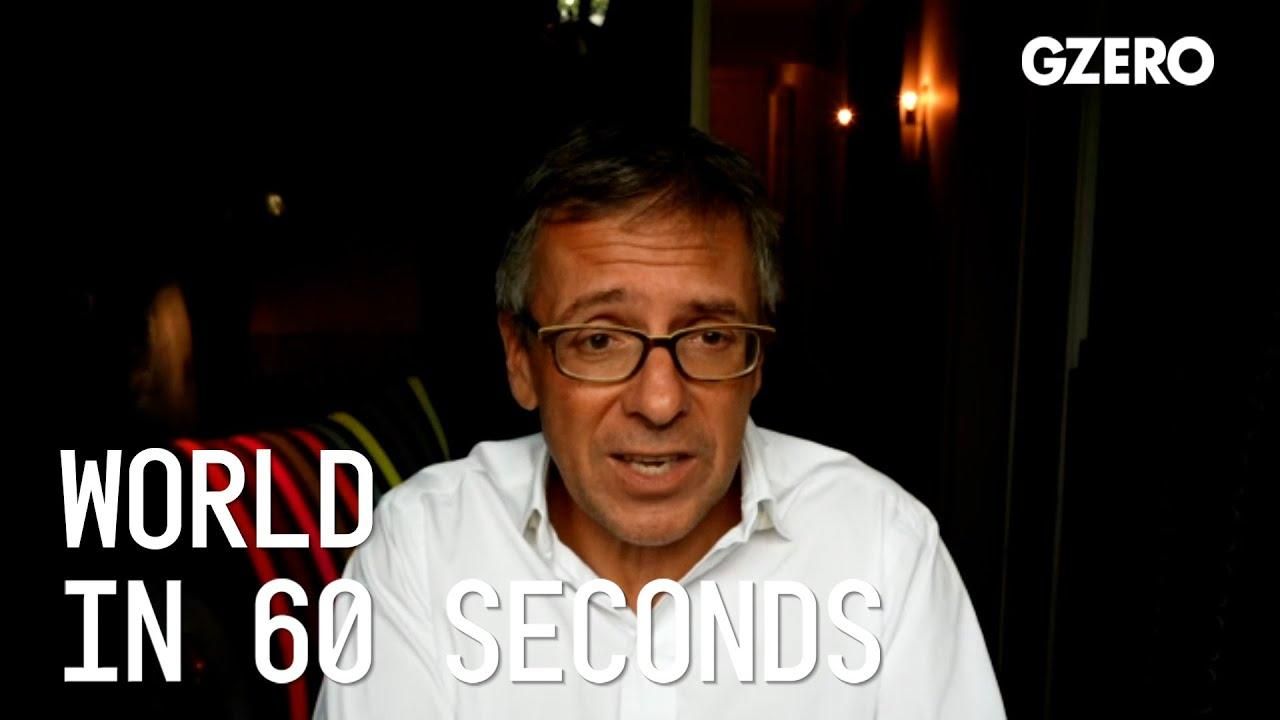Ian Bremmer shares his insights on global politics this week on World In :60.
Will Russia cutting gas sanctions to Europe lead to the EU lifting sanctions?
I don't see it. I've got to tell you, I do think that Russia will cut all of the gas to Europe by winter. It's where their leverage is, but let's keep in mind these are EU sanctions unanimously supported by all EU member states. That means that individual countries that don't like them don't suddenly break from the EU. Would have to come to that agreement. They're not going to. We've gone through seven rounds now. It's quite something. I do think you could see individual European countries start trying to pressure the Ukrainians to get to the negotiating table. Maybe even accept some loss of territory, which the Ukrainians will be very loathe to do. We'll watch that carefully. But the sanctions, the sanctions are not going away. They're not going away at all.
Does Russia purchasing arms from North Korea show that sanctions are working?
Well, I mean first, this is declassified information from the United States from the CIA, but I wouldn't yet say that we have hard evidence that it is definitely coming from North Korea. So this is a claim that's being made by the US government right now. But look, it's clear that the Russians are using armaments in the field that are very old and that are not working very well and are not up to snuff with what NATO is providing the Ukrainians right now. It's also clear that the Russians have been trying to get a lot of military support from China, and they failed because the Chinese do not want to be tarred with the same brush and the same sanctions brush. Go back to the last question, as the Russians have. Who does that leave? Rogue states like Iran and North Korea. So yeah, I definitely think it shows that sanctions are working.
What changes will the new Prime Minister Liz Truss bring to the United Kingdom?
Well I mean, in the early days, they are facing the worst economic challenges of the entire G7. They have not been engaged in stockpiling energy for the winter. They don't get any energy really from Russia at this point, but they're facing the same supply chain challenges and price challenges that all the other countries are, and they are not set up for. So she's going to put through a 100 billion pound deal to effectively reduce the costs on consumers right now that they're going to have to pay back. They're also planning on reducing corporate tax. I mean, it's a solidly pro-business agenda. Within the realm of the Conservative Party, not surprising in the UK, but the economics from a fiscal perspective are going to be very challenging indeed, with more money going to the people and less money coming into the corporate government coffers. You're going to see less government, but at a time when people are demanding more, government's going to be interesting to watch how that goes. The good news is that she's not going to be interested in pushing too hard on Northern Ireland right now. They don't need a big problem with the EU on top of everything else they're dealing with that. That gets kicked down the road at least a bit.
More For You
At the 2026 World Economic Forum, GZERO's Tony Maciulis spoke with Matthew Blake, Managing Director at the World Economic Forum, about a defining transition for Davos and the state of the global economy.
Most Popular
5: The number of years South Korea’s ex-President Yoon Suk Yeol was sentenced in prison today, on charges related to his failed attempt to impose martial law last year.
The Russian president said little when the US seized Venezuelan strongman Nicolás Maduro, an ally of Moscow. But there might be a reason for his silence.
